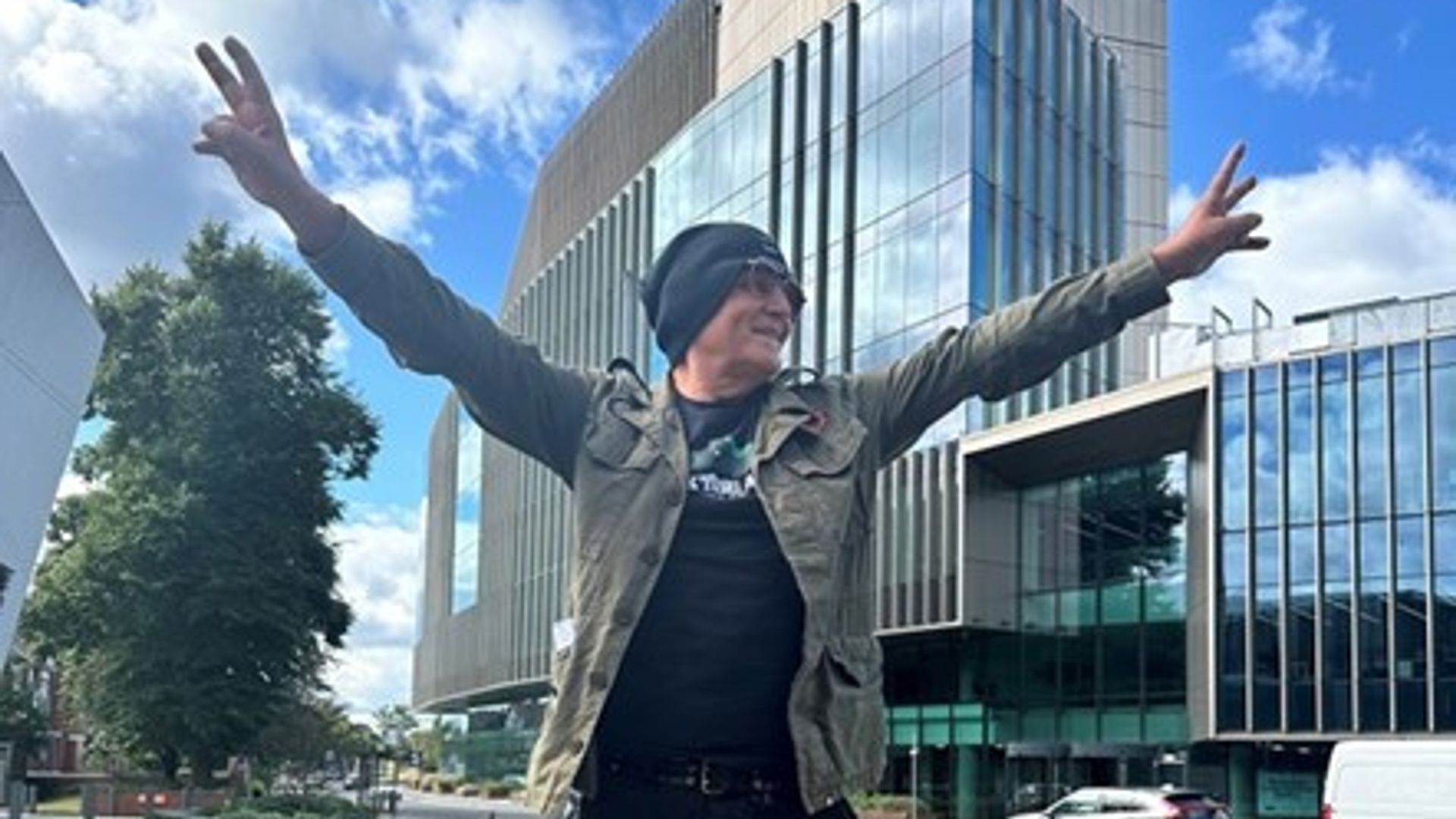The frontman of rock band The Alarm has revealed he is in remission from cancer thanks to an NHS drug trial.
Mike Peters was forced to cancel a US tour earlier this year after he was diagnosed with fast-growing lymphoma.
The rock star has been given the all-clear after undergoing experimental therapy in Manchester.
During his career, the North Wales-based musician has supported U2 and Status Quo on tour.
The 65-year-old was first diagnosed with chronic lymphocytic leukaemia – a rare type of cancer that affects the blood and bone marrow – more than 29 years ago.
In April, Peters discovered a lump in his neck that had appeared overnight, five days before he was due to fly to Chicago for a North American tour.
Doctors realised he may have developed Richter’s syndrome, where the lymphoma becomes much more aggressive.
Ysgol Dyffryn Aman: Girl accused of attempted murder at school said ‘That’s one way to be a celebrity’, court hears
Tata Steel: UK’s biggest steelworks to cease production after more than 100 years
Man jailed over murder of father-of-four killed in ‘senseless attack’
Peters was told that “without treatment [he] only had a couple of months to live”.
“It’s been a tough few months to say the least,” he said.
“I consider myself lucky I discovered the lump before I’d left for The States, as I might not be here now if I hadn’t.”
Keep up with all the latest news from the UK and around the world by following Sky News
The frontman agreed to take part in a clinical trial at the Christie NHS Foundation Trust which was investigating the combination of medication called acalabrutinib along with standard chemotherapy.
The combination had not yet been tested for Richter’s syndrome and its aim is to increase both the chance of the cancer responding to treatment and the duration of the response.
Read more from Sky News:
Strictly star hails ‘vindication’ over BBC apology
Oasis announce plans for new concerts
Be the first to get Breaking News
Install the Sky News app for free
“The drugs worked so quickly, and the lump disappeared as fast as it appeared,” Peters added.
“I’d encourage anyone to consider taking part in a clinical trial if that is a viable option for them.”
Peters says the plan is now for him to proceed with a donor stem cell transplant, in a bid “to be cured once and for all”.









